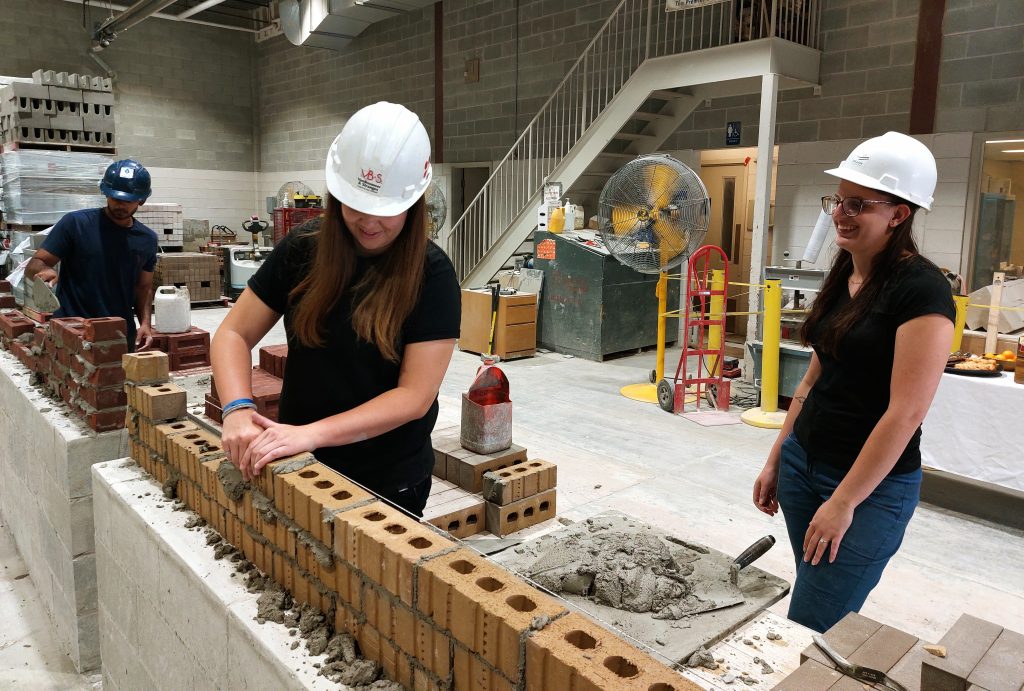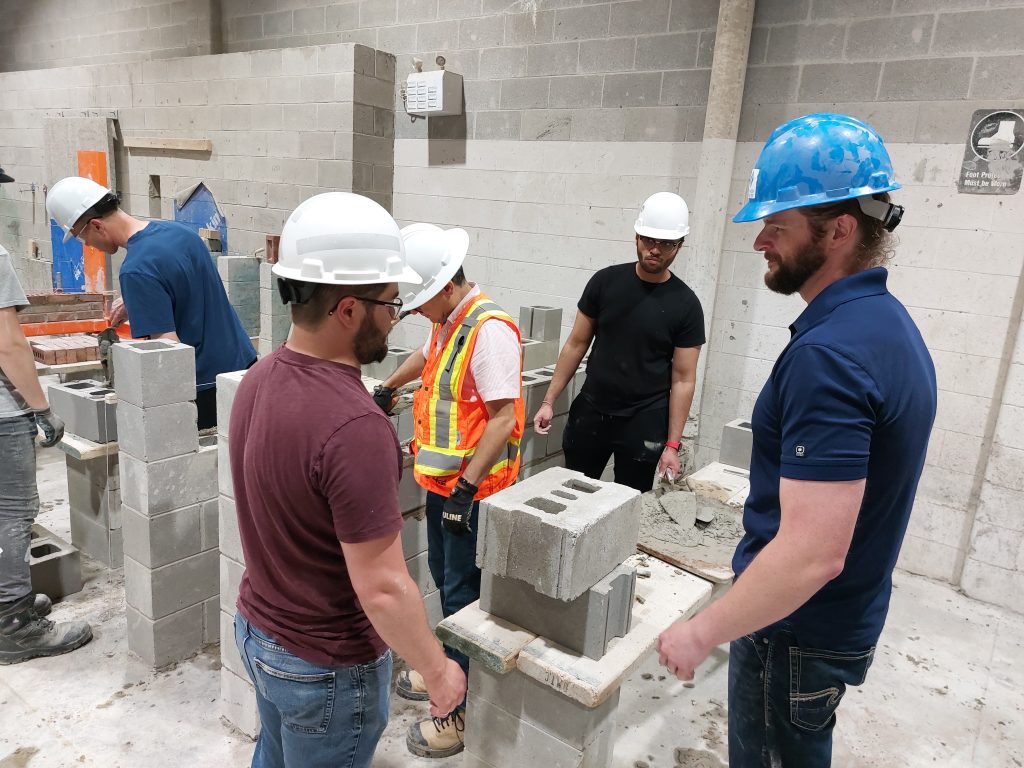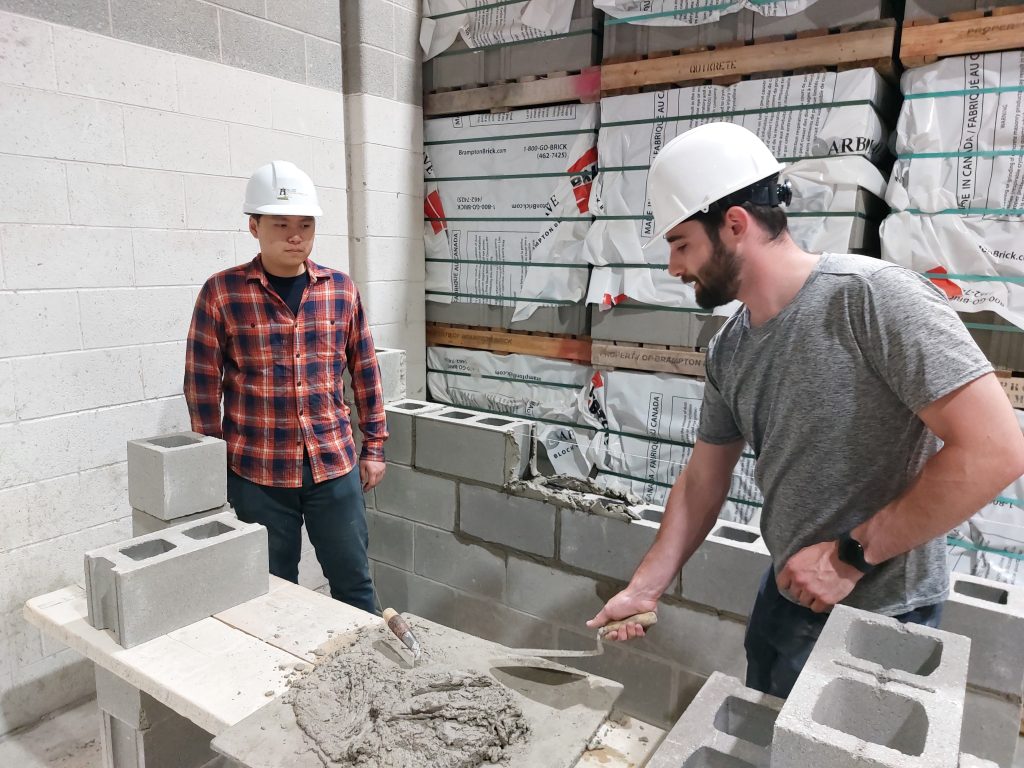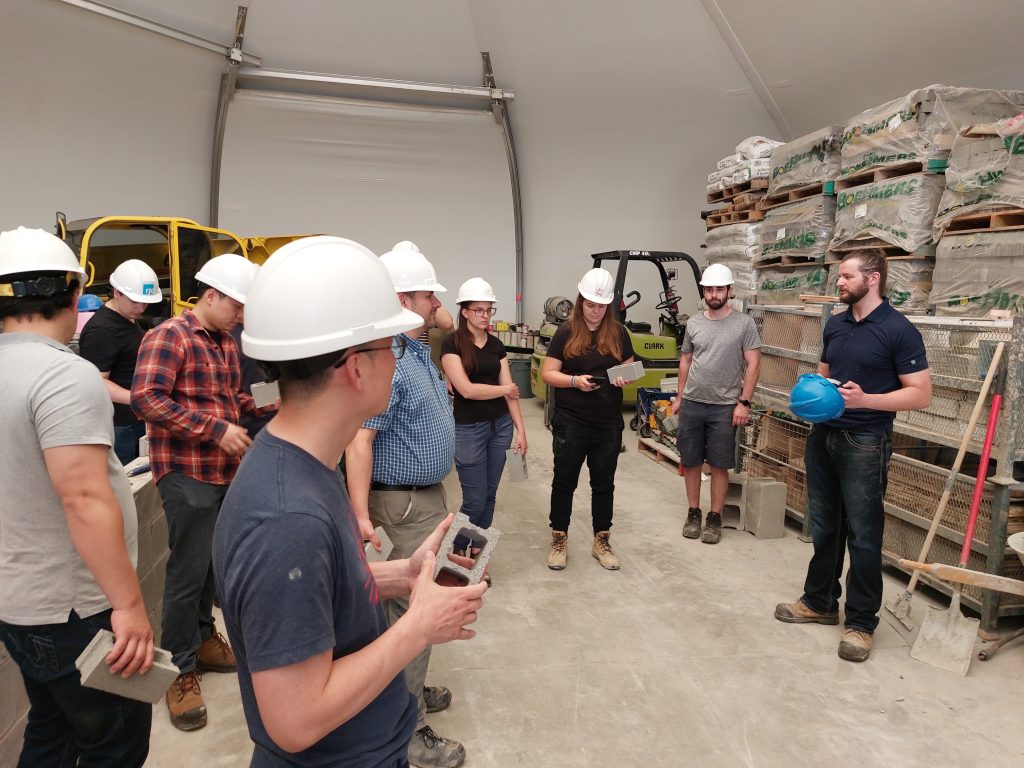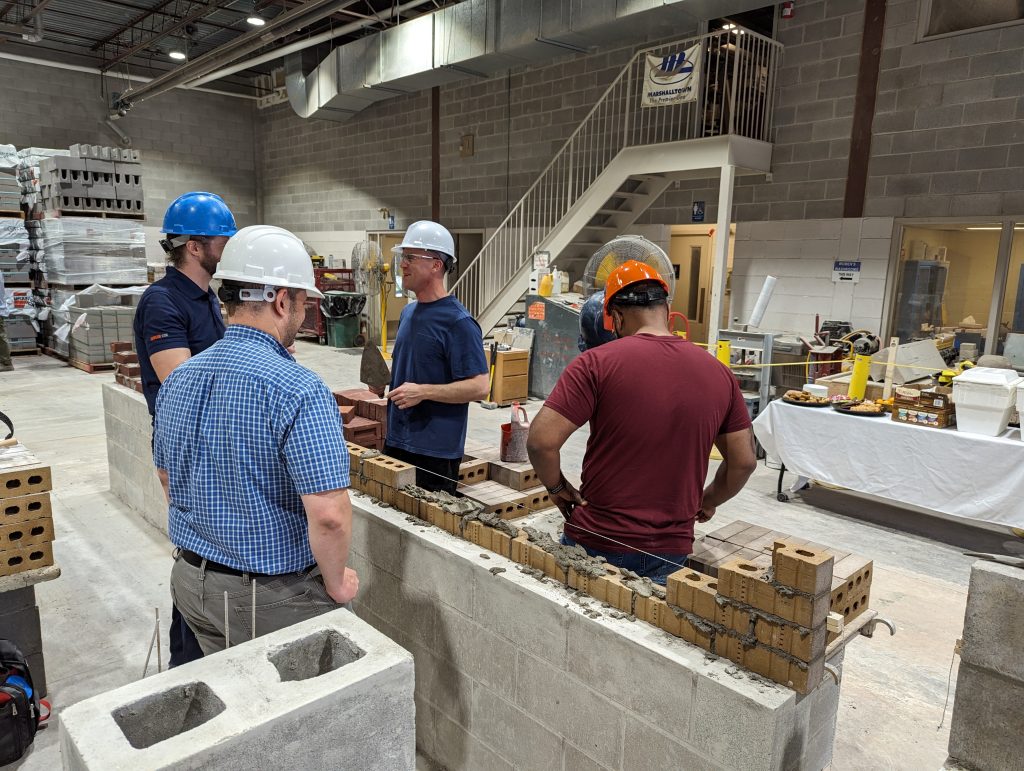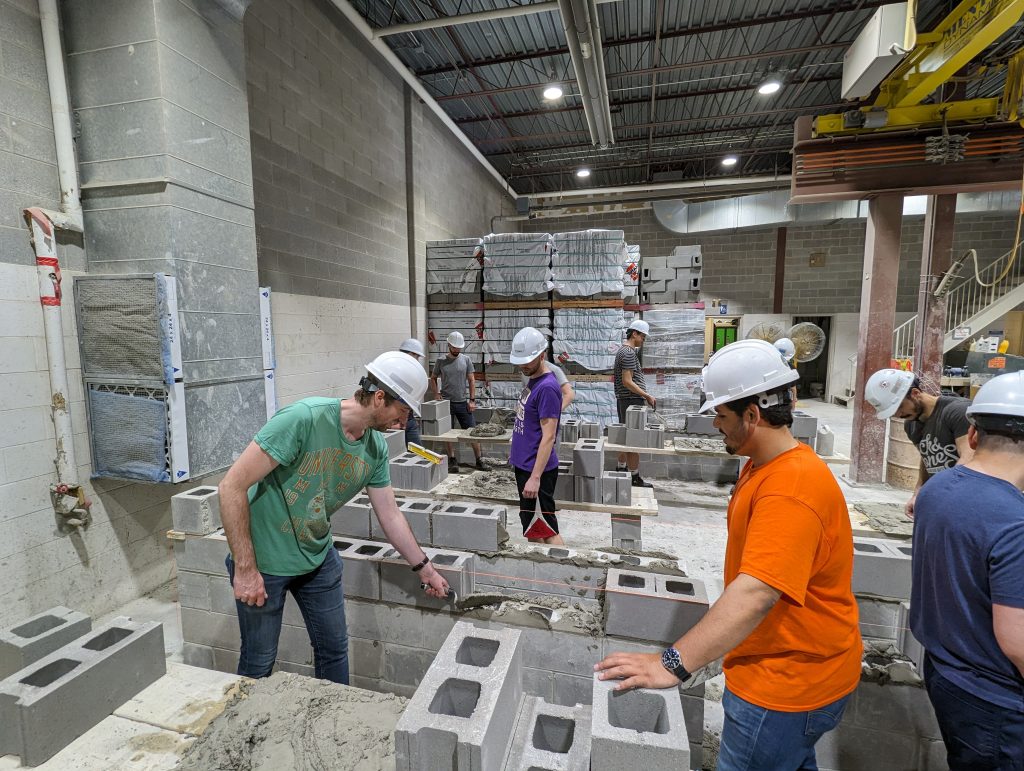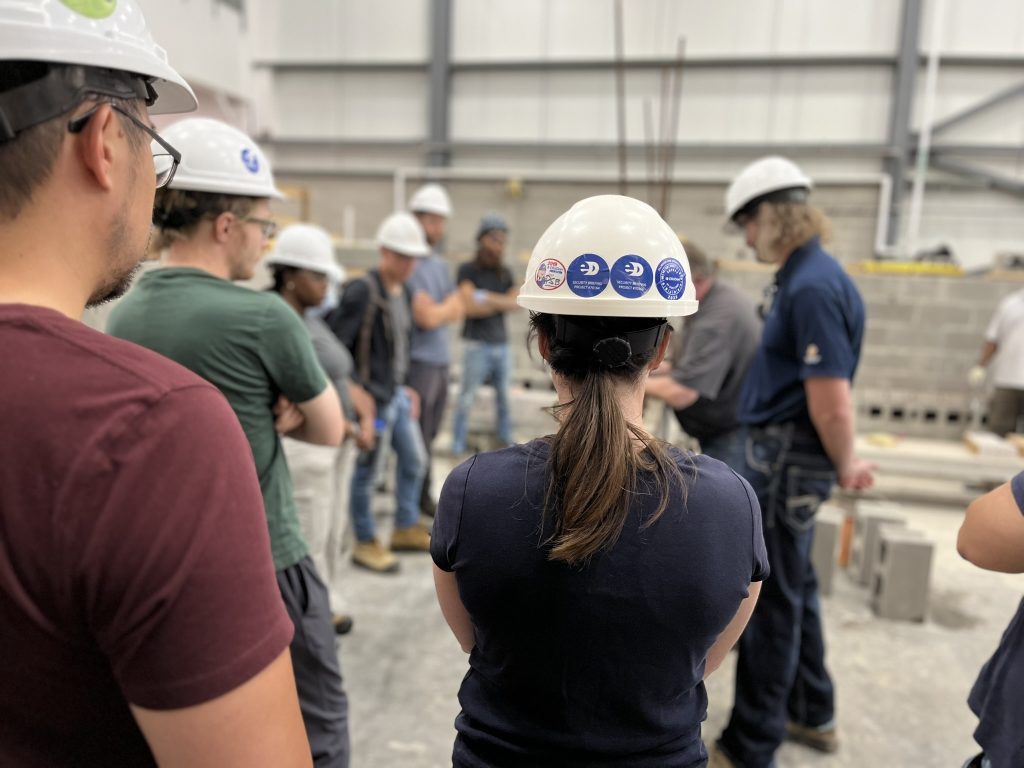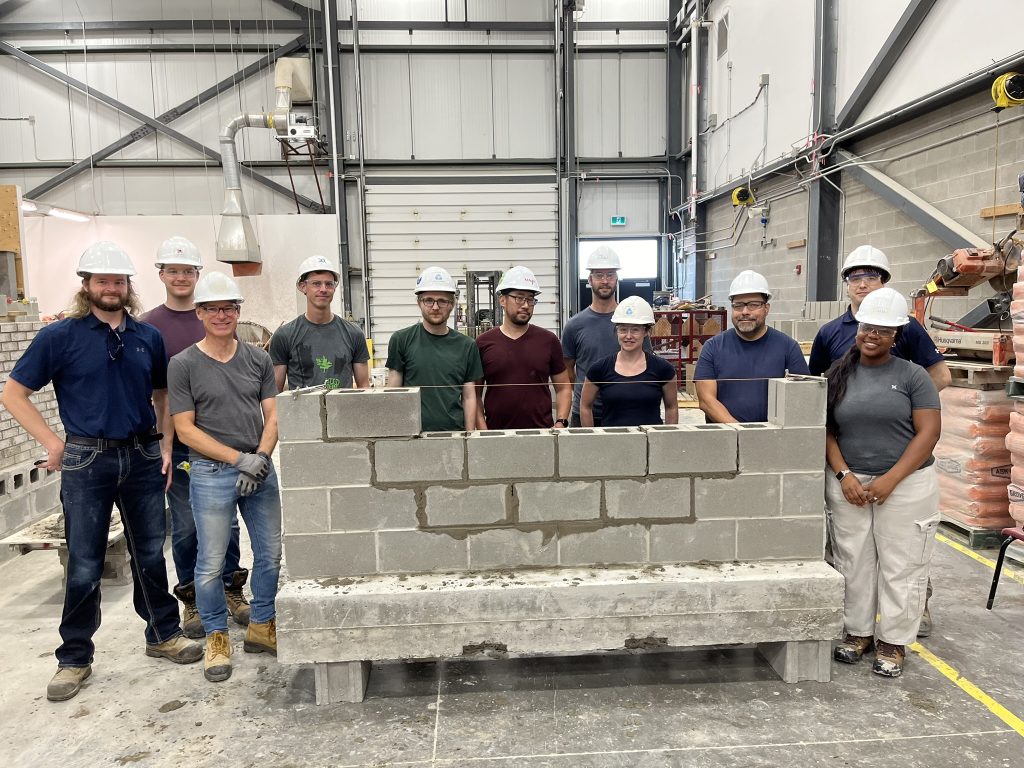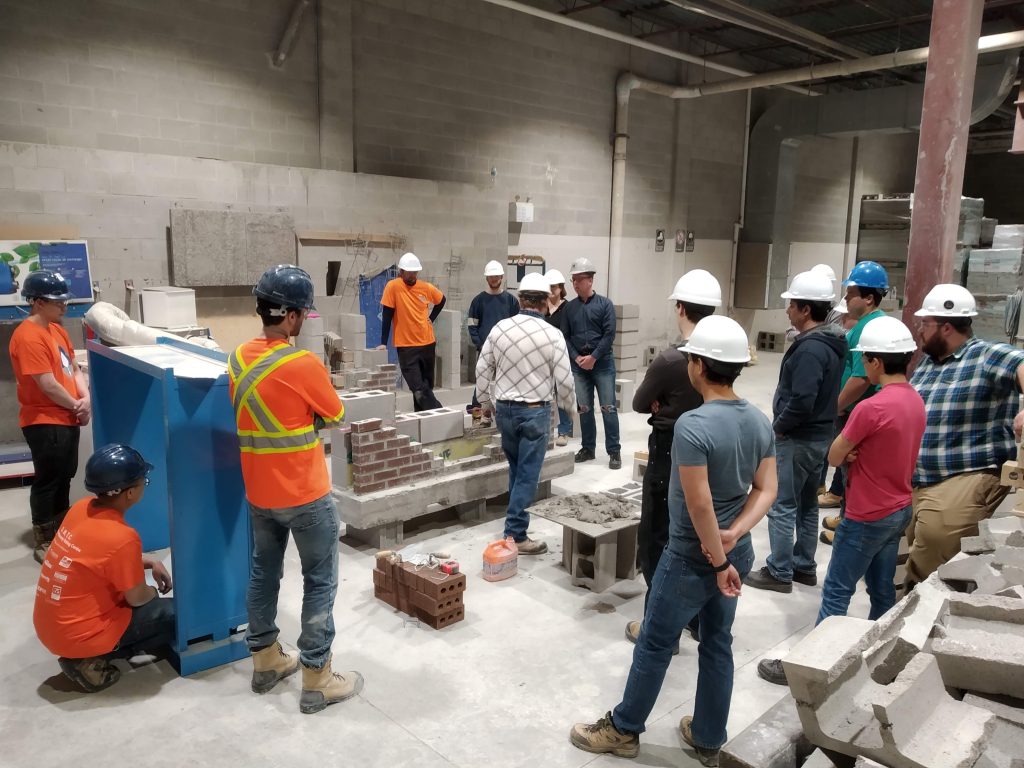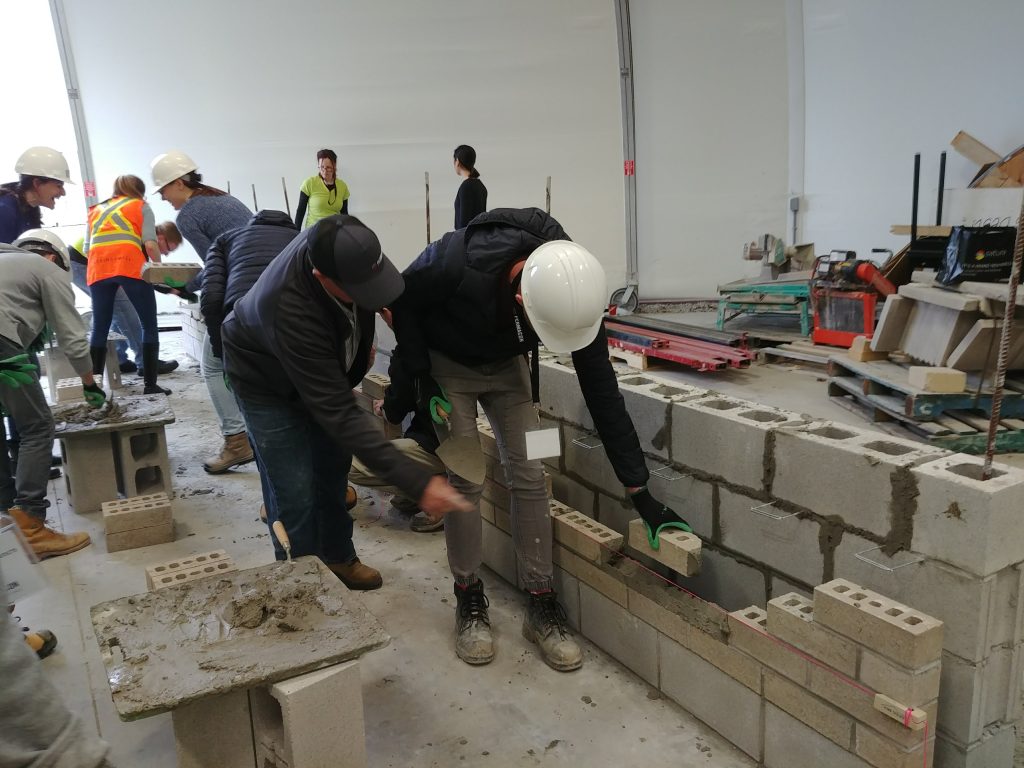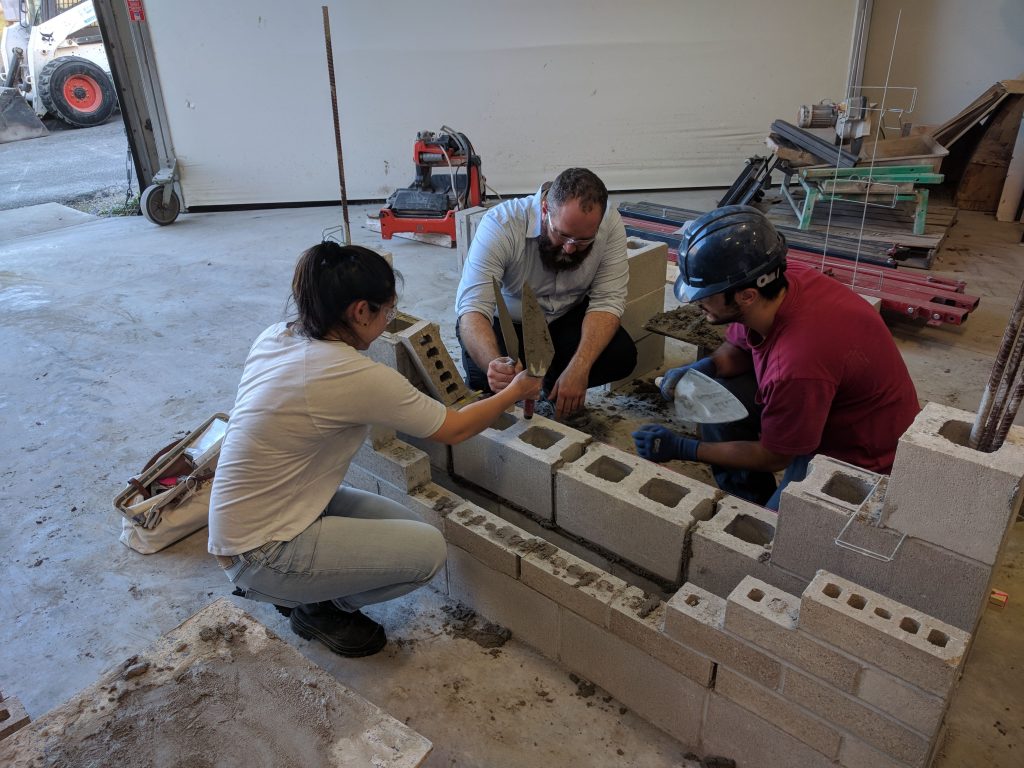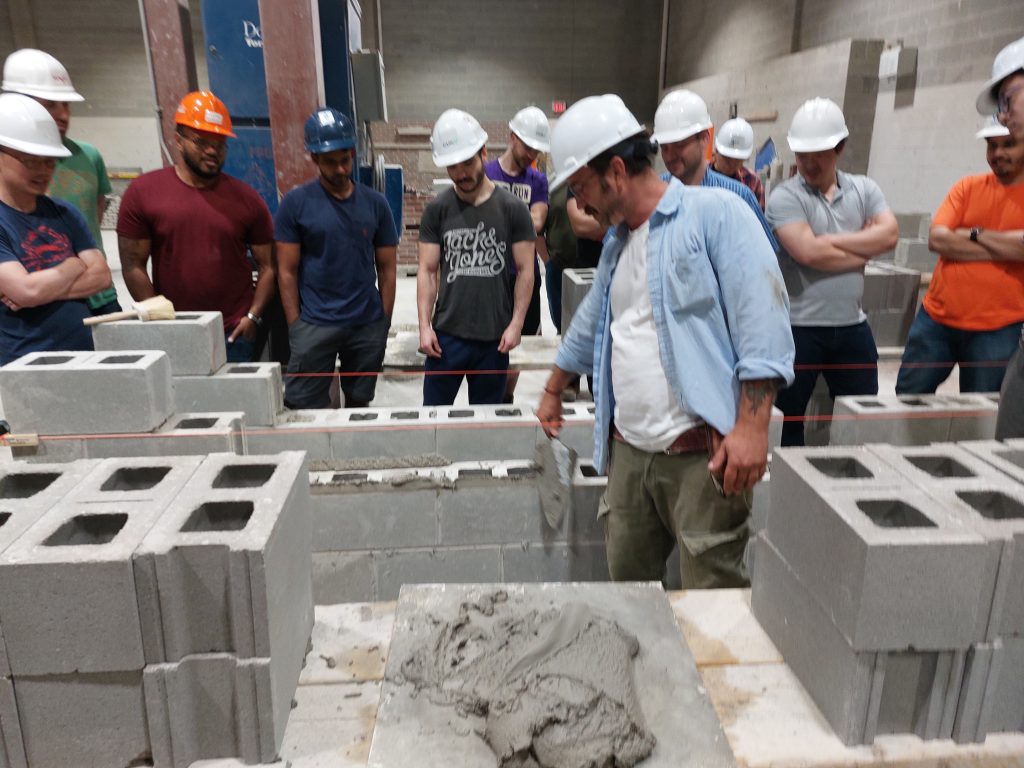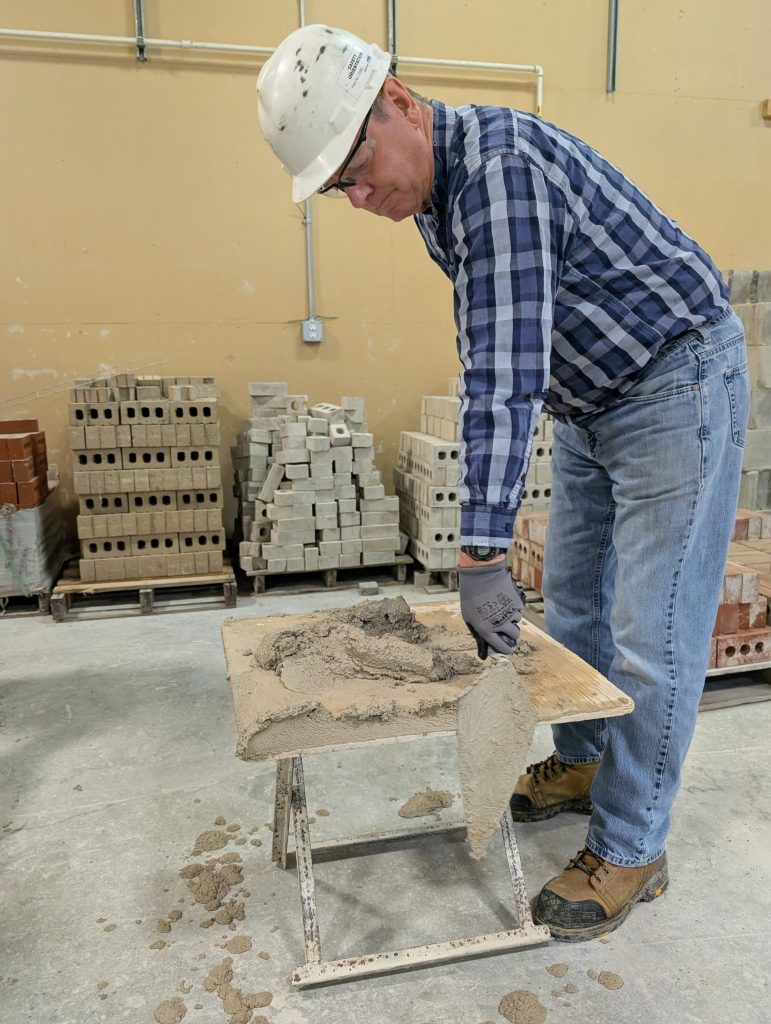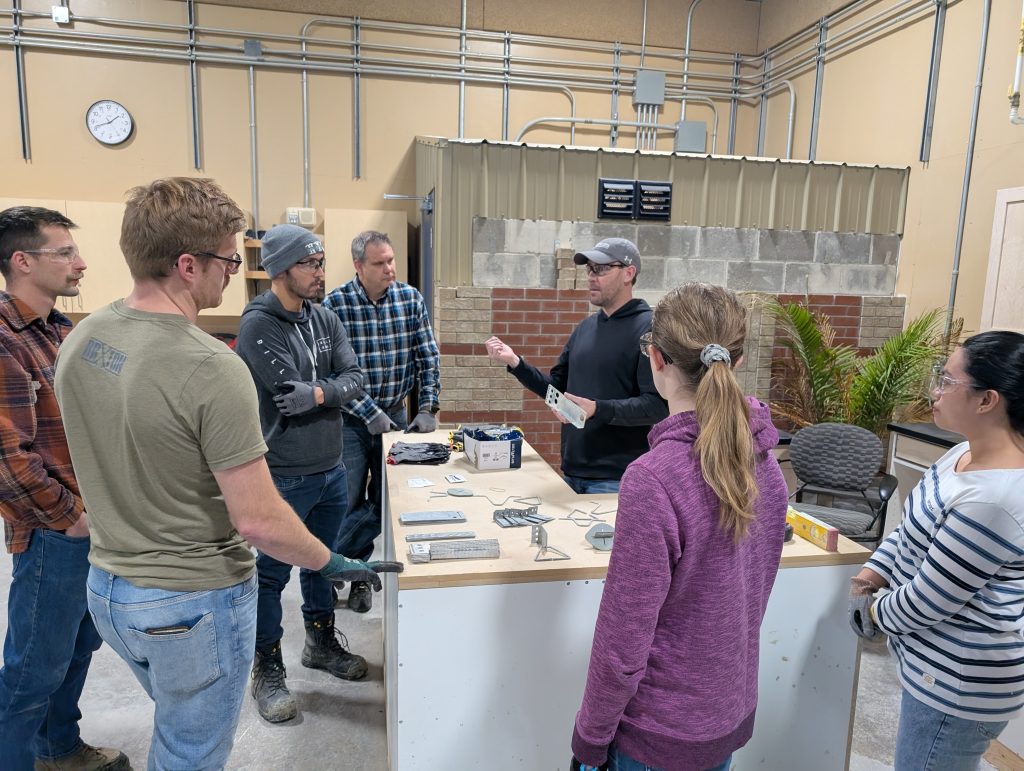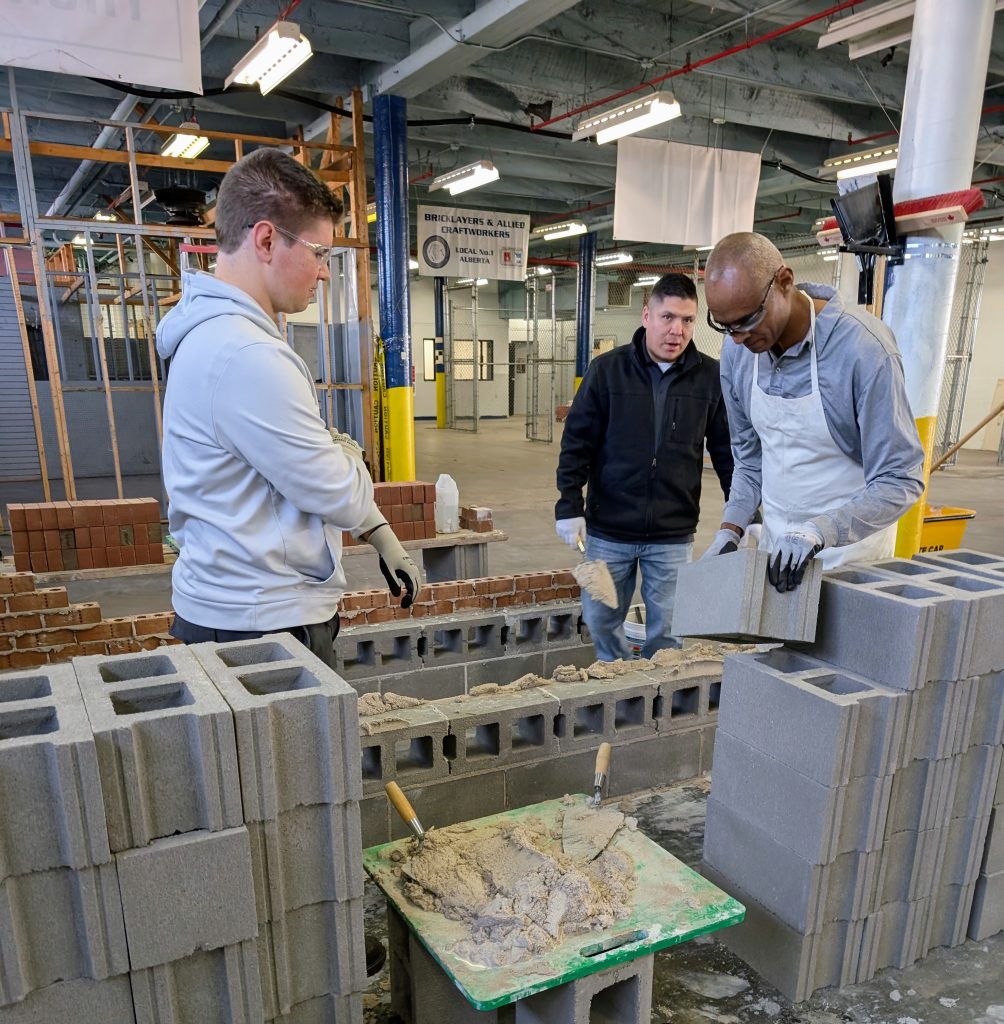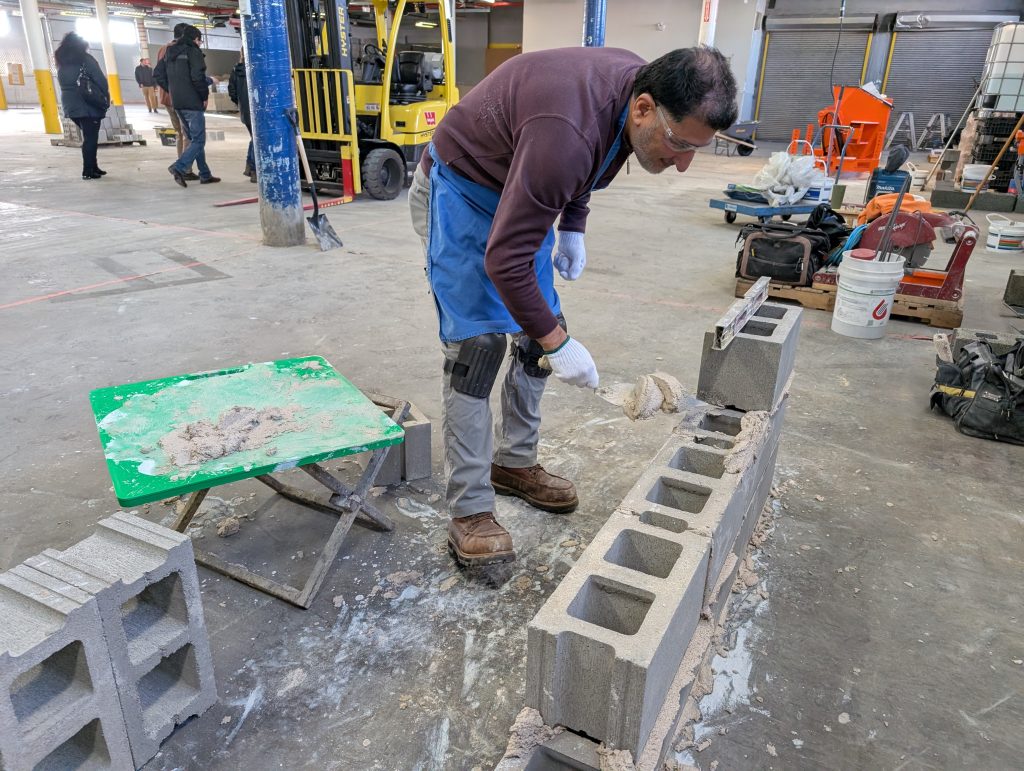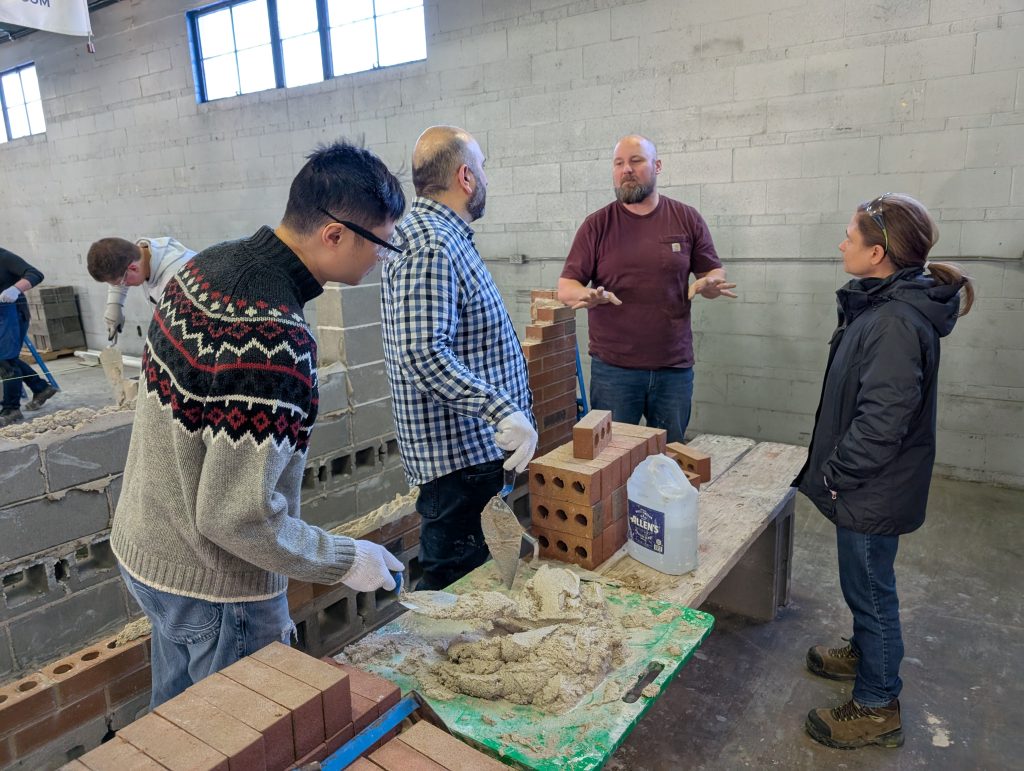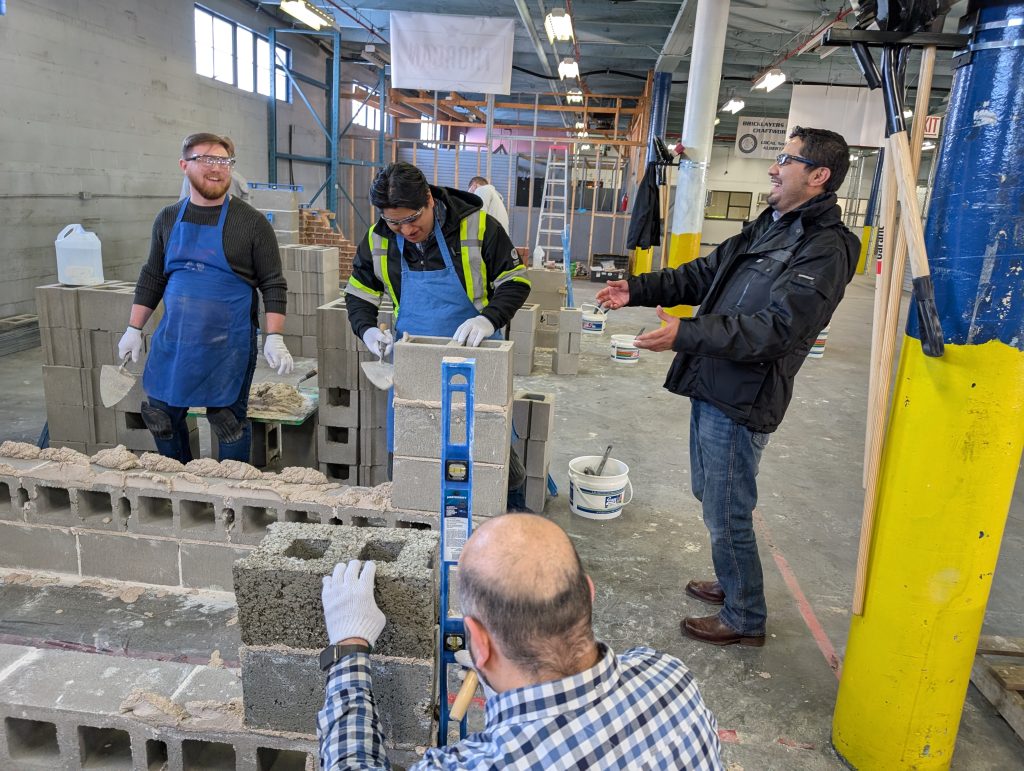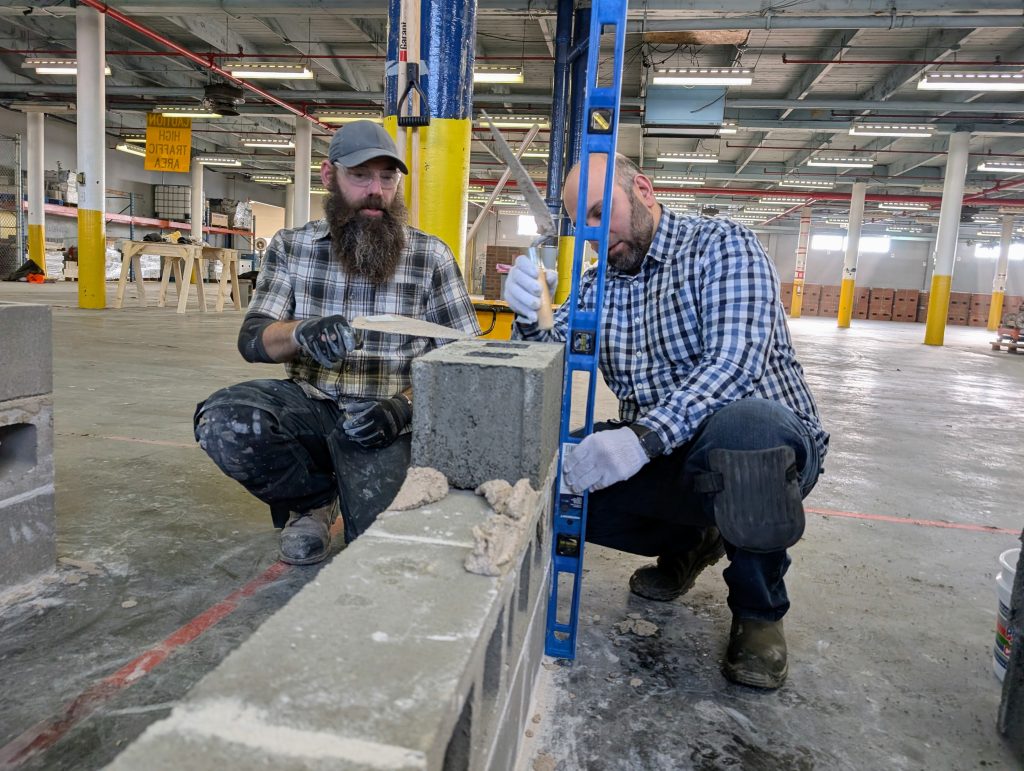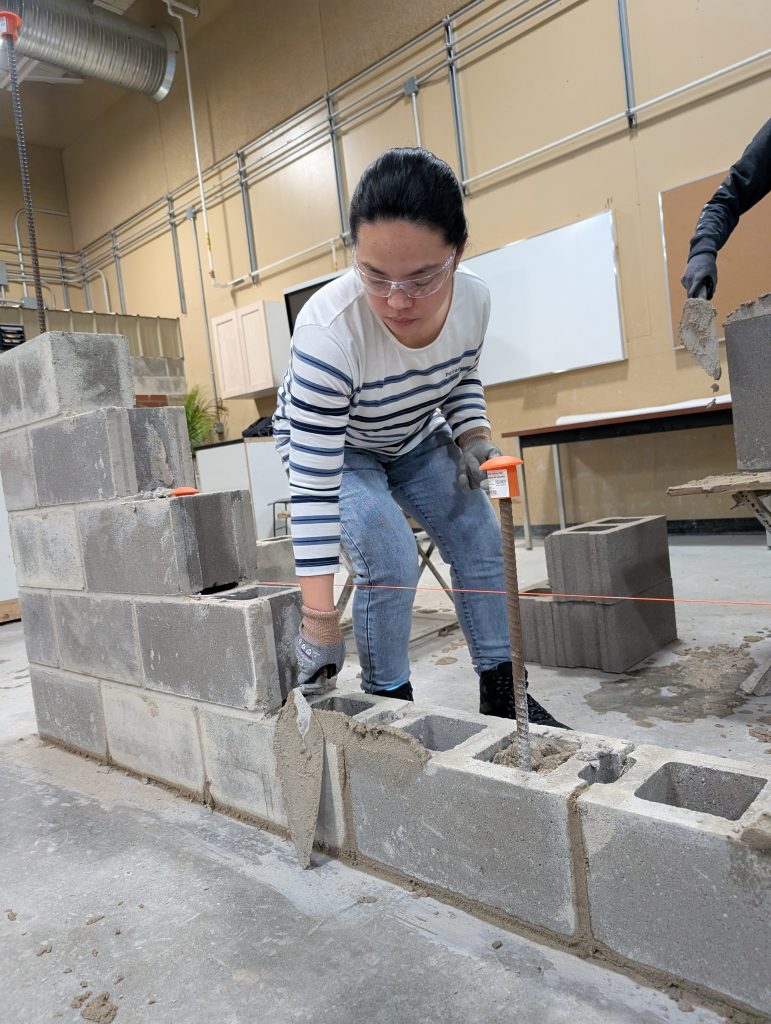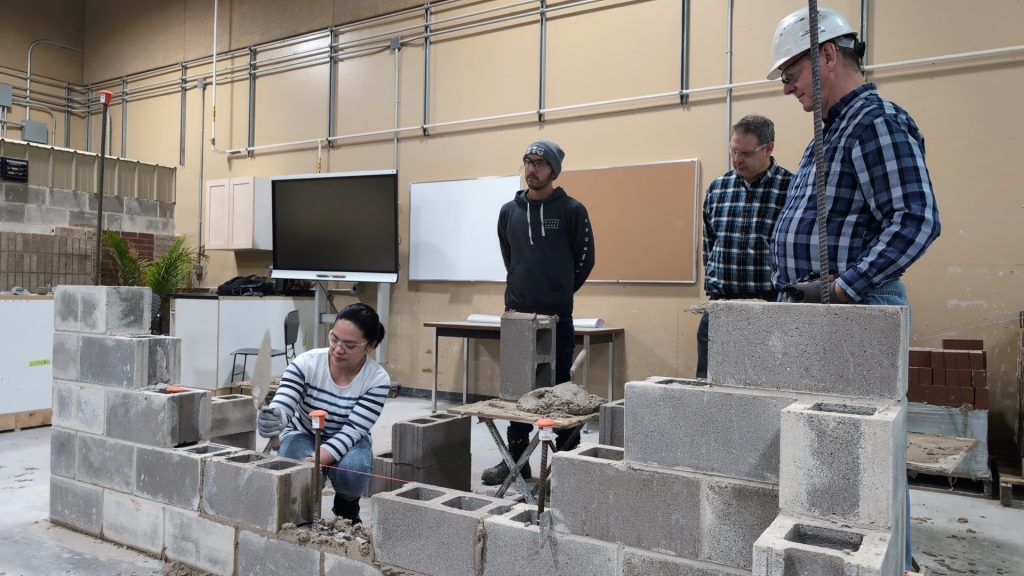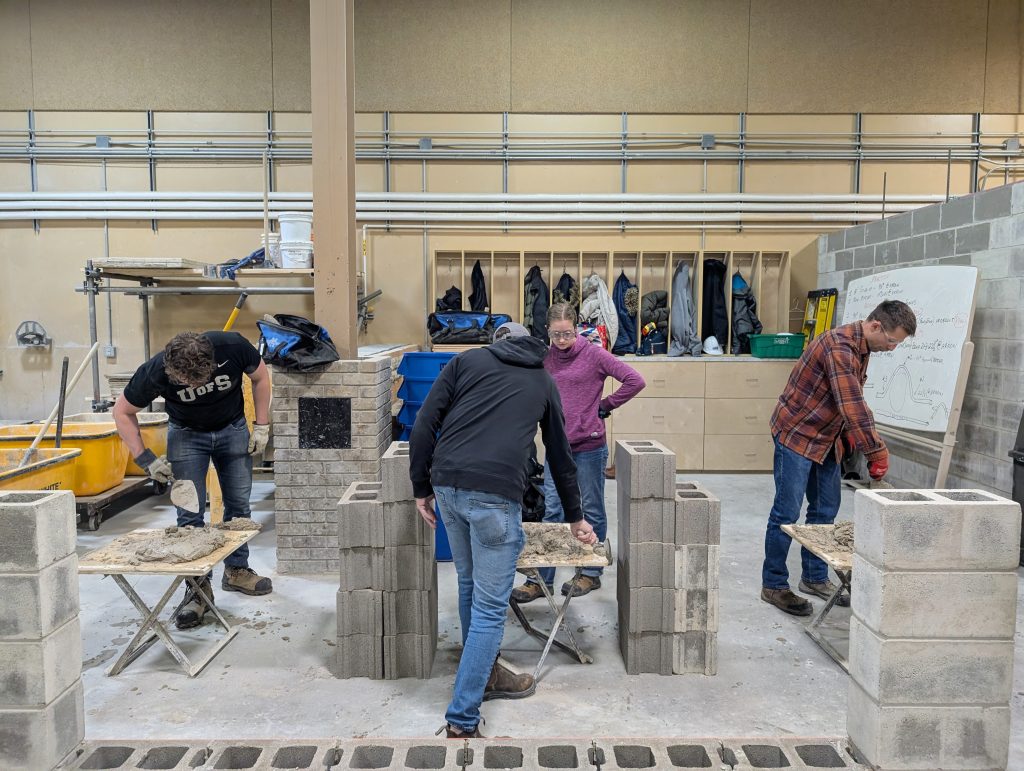You can be the masonry expert in your team. This course equips you with everything you need to become a proficient designer from the team behind the engineering textbook and MASS design software.
Engineered Masonry Design Course
The Engineered Masonry Design Course (EMDC) is a professional course offered to practicing engineers in the local design community. It equips you with the tools and knowledge to design masonry confidently, effectively and efficiently, using current codes and standards.
Continue scrolling for more information
Presented by:

Upcoming Courses:
 Mississauga – 2026
Mississauga – 2026
 Vancouver – 2026
Vancouver – 2026
Vancouver – 2026
 Winnipeg – 2026
Winnipeg – 2026
Winnipeg – 2026
What is the EMDC?
A professional course offered to practicing engineers
The Engineered Masonry Design Course (EMDC) is tailored to equip you with the tools and knowledge to design masonry confidently, effectively, and efficiently. This course has been offered to more than 500 practicing engineers in Canada and is roughly equivalent to a 4th year engineering undergraduate university course in both scope and workload (there is a significant amount of homework required so please consider this before registering). The materials covered reflect Canadian design practice and are taught to the 2014 editions of masonry CSA Standards as well as the 2020 edition of the National Building Code of Canada.
More than just getting your Professional Development hours
The intention of the course is beyond simple professional development hours; you gain the skills necessary to properly analyze and design with masonry in new construction in Canada. This is the equivalent to the level of knowledge gained from a 4th year design course in a university undergraduate program and involves approximately 40 hours of in person and virtual guided learning time as well as graded assignments, a take home design project, and a take home final exam. Participants will be provided detailed feedback as well as a final grade.
Topics covered by the Engineered Masonry Design Course:
In-Person #1
Pre-Watch Content
Masonry Codes and Standards
Structural Masonry Materials
In-Class
EMDC Introduction and Outline
Online Learning Tutorial
Masonry Beams
Ultimate Limit States Shear and Flexure
Serviceability Limit States
Detailing of Reinforcement
Design Examples
Homework
Beam Design Tutorial Exercise
Assignment #1: Masonry Beam Design
In-Person #2
Pre-Watch Content
Unreinforced Out-of-Plane Walls
Masonry Partition Walls
Walls Subject to Concentrated Loads
Masonry Columns and Pilasters
In-Class
Out-of-Plane Masonry Walls
Ultimate Limit States Shear and Flexure
Interaction Diagram
Deflection, Second Order Effects, and Slenderness
Serviceability Limit States
Detailing
Design Examples
Homework
Out-of-Plane Wall Design Tutorial Exercise
Assignment #2: Out-of-Plane Wall Design
In-Person #3
Pre-Watch Content
Specifications, Detailing, and Workmanship
Supplemental Wall Analysis and Design Techniques
In-Class
Design of Veneers, Ties, and Shelf Angles
Masonry Shear Walls
Ultimate Limit States Shear and Flexure
Serviceability Limit States
Detailing
Design Examples
Single Storey Buildings
Load Calculation
Load Distribution around Openings and Movement Joints
Design Examples:
Homework
In-Plane Wall Design Tutorial Exercise
Assignment #3: In-Plane Wall Design
In-Person #4
Pre-Watch Content
Single Storey Post-Disaster Building
Design of Ductile Shear Walls and Walls with Boundary Elements
In-Class
Seismic Design Methods of NBCC
Seismic Modelling and Analysis Methods
Design of Conventional Construction Shear Walls
Design of Moderately Ductile Shear Walls
Homework
Building Design Tutorial Exercise
Design Project
Take Home Exam

Supplemental
Bricklayer Experience (In-Person Scheduled Event)
Mixing Mortar
Lay Brick To The Line
Lay CMU To The Line
Virtual Lectures
MASS Design Software
Design of Masonry Beams
Design of Out-of-Plane Walls
Design of Masonry Shear Walls
Shear Wall Load Distribution with Openings and Movement Joints
The course content will follow the textbook Masonry Structures Behaviour and Design – 2nd Canadian edition (each registrant will receive a copy of the textbook with registration). The following topics are covered reflecting the Chapters within the textbook:
- Masonry Materials and Assemblages (Chapters 3 and 4)
- Design of Masonry Beams (Chapter 5)
- Design of Masonry Out-of-Plane Walls (Chapter 6)
- Design of Masonry Shear Walls (Chapter 7)
- Seismic Design of Masonry (Chapter 8)
- Design of Masonry Columns and Pilasters (Chapter 9)
- Design of Veneers and Partition Walls (Chapters 10 & 11)
- Construction, Workmanship, and Specifications (Chapter 12)
- Design Project: Single Storey Loadbearing Post-Disaster Structure (Chapter 13)
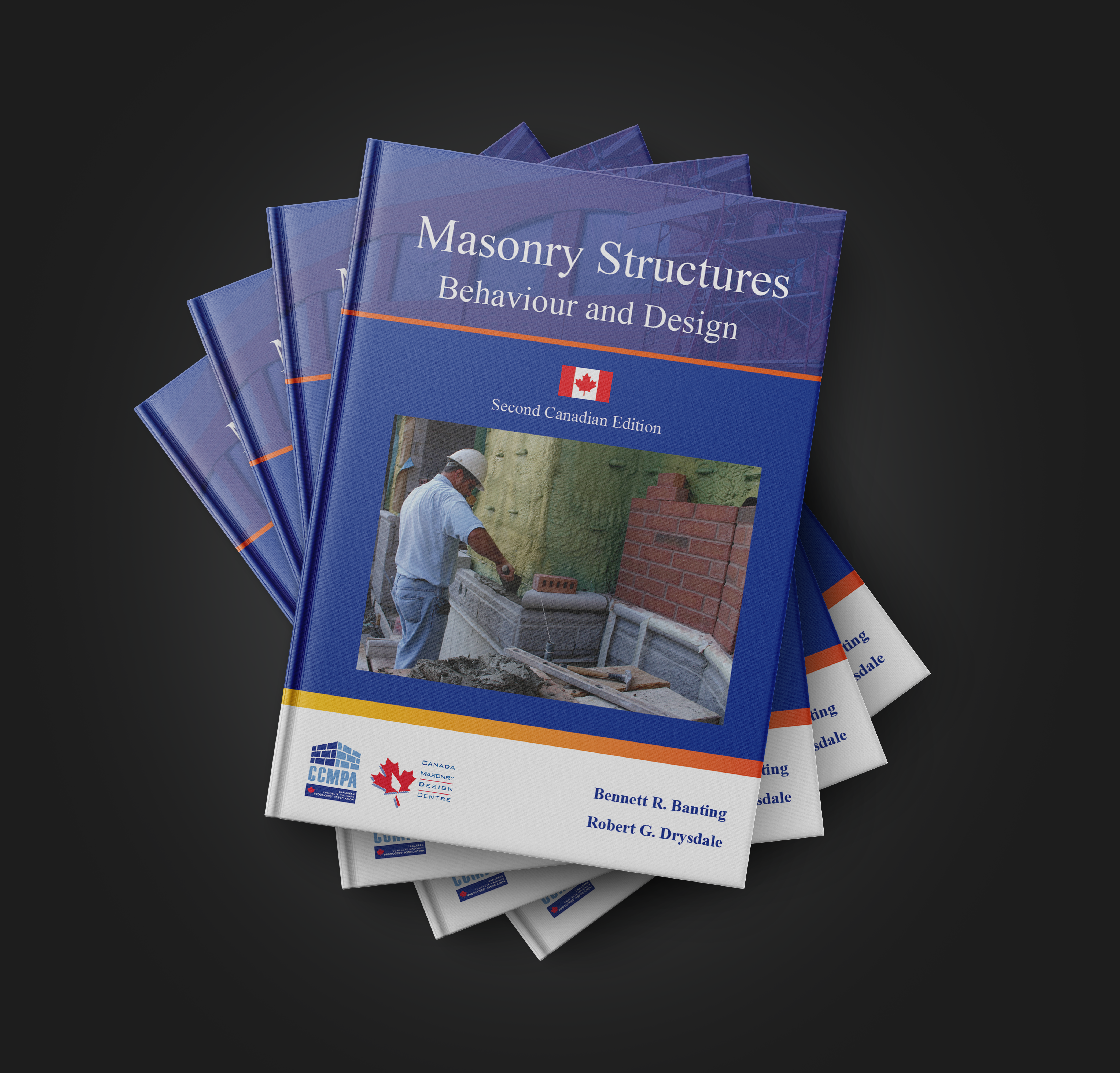
Condensed In-Person & Online Format
Breakfast and Lunch included for all in-person sessions
Each in-person session will provide participants with a light breakfast, lunch, snacks, and coffee/refreshment breaks. Registrants must indicate any dietary restrictions during registration.
In-Person Teaching
Four In-Person Sessions
The course is being run using a hybrid of both in-person and virtual platforms. There will be four full in-person days of lecture content with virtual lectures and tutorials in weeks between. As part of the course, there will also be a scheduled half-day that will be dedicated to a hands-on demonstration of bricklaying during which time you will have a chance to learn how to build with masonry and lay bricks and blocks on mortar. The course will be spread over approximately 2.5 months.
Upcoming Courses
Find a course offered near you to see specific scheduling
All Upcoming Courses
As courses are planned and announced, they will be posted here. Courses planned further out (ie. more than a few months) can be lacking details such as venue or exact dates. If you are interested in a potential future course, signing up for the waiting list is the best way to ensure that you do not miss an EMDC near you.
Full days are scheduled to cover material through in-person lectures. This will give you an opportunity to receive your copy of the textbook as well as other course materials and meaningful engagement with our staff and other students face-to-face.
It is critical that registrants can attend these in-person sessions
For convenience, we will be recording these in-person virtual lectures for students to access and review after. Attendance at the in-person lectures is worth a portion of the final grade.
See what others have to say
Verified reviews from recent EMDC participants, written with you in mind (sign up for the closest one today)
What else is involved?
This is not just a Seminar Series!
Course Workload and Expectations:
This is the equivalent of a condensed, final year undergraduate university course with the workload and technical difficulty to match.
In order to pass the course and earn a certificate, participants must meet the minimum requirements which include submitting two assignments, a design project, and a final exam. CMDC is available to offer guidance and extra support to ensure that everyone who puts in the time and effort will have the tools to be successful.
Try your hand - Gain a new appreciation!
Understand the skill aspect of the skilled trade
Get a unique opportunity in a relaxed, low pressure environment to manipulating mortar on the trowel and laying brick or block yourself!
Participation is 100% optional. It is worth none of your final grade, but is consistently enjoyed by all who attend.
Course Instructors
Bennett Banting, Ph.D., P.Eng
Director of Technical Services, Canada Masonry Design Centre
Bennett R. Banting is the current Director of Technical Services for the Canada Masonry Design Centre in the Ottawa, ON office.
He began as a graduate student with a NSERC industrial postgraduate scholarship visiting the CMDC office back in 2007 and started to work full-time for CMDC in 2012 as a NSERC industrial research and development post-doctoral fellow. His Ph.D. dissertation from McMaster University was instrumental in the introduction of masonry boundary elements and the ductile shear walls SFRS category to the 2014 edition of the CSA S304 design standard. For his work he was the recipient of the TMS Ph.D. Thesis award in 2015.
Over the years he has overseen numerous grant-leveraged masonry research programs at Universities across Canada, taught masonry design courses for professional engineers, undergraduate and graduate students at various venues, presented and spoken at numerous conferences and seminars, and has published dozens of peer-reviewed journal papers, conference papers, and other industry literature and research reports on behalf of the masonry industry. He is the current Vice Chair of CSA S304 and serves as a voting or non-voting member of other CSA, ACI and ULC committees as well as various committees and working groups at the National Buildings Code of Canada. He has served as the technical committee chair for the 13th, 14th, and 15th Canadian Masonry Symposium and is a regular reviewer of masonry publications for a variety of different journals. He is the current lead author of the Masonry Structures: Behaviour and Design, 2nd Canadian Edition masonry design textbook.
Brad Crumb, P.Eng
Masonry Design Engineer, Canada Masonry Design Centre
Brad has been part of the CMDC team since graduating from McMaster in 2011 and was initally overseeing development and providing technical support for the MASS software (Masonry Analysis Structural Systems). Brad now spends much of his time providing general technical support to designers and masonry contractor members concerning all things masonry design and construction, as well as helping run design courses, seminars, and lunch-and-learns for engineering and architecture firms.
Andrew Smith, M.A.Sc., P.Eng.
Masonry Design Engineer, Canada Masonry Design Centre
Andrew is a Masonry Design Engineer with the Canada Masonry Design Centre (CMDC) – Atlantic Office and has been with the company since 2018. Andrew holds a B.Sc. and M.A.Sc. in Civil Engineering from Dalhousie University. He is the author of the Atlantic Canada Multi-Residential Construction Cost Comparison Study and provides technical assistance to engineers and architects across Atlantic Canada.
Andrew was a technical editor for Masonry Structures: Behaviour and Design textbook, contributes to the development of the MASS Software and serves as a member of several CSA technical committees, including S304 (Design of Masonry Structures), Z797 (Access Scaffolding), and B354 (Mast Climbing Work Platforms).
In addition, Andrew collaborates with the Atlantic Masonry Institute to support the development of the region’s future masonry workforce, ensuring a skilled and knowledgeable industry for years to come.
Adrien Sparling, Ph.D., P.Eng
Masonry Design Engineer, Canada Masonry Design Centre
Adrien grew up in Winnipeg where he completed his B.Sc. and M.Sc. degrees in Civil Engineering at the University of Manitoba. He continued his studies at York University in Toronto where he earned his Ph.D. in 2022. Adrien was a recipient of the NSERC Alexander Graham Bell Post-Graduate Doctoral scholarship from 2016 to 2018 as well as the Queen Elisabeth II Graduate Scholarship in Science and Technology in 2019. Since 2022, he is part of the technical design team at the Canada Masonry Design Centre and works in close collaboration with the Association des entrepreneurs en maçonnerie du Québec (AEMQ) from the Québec regional office. Although Adrien’s technical education has been in English, his francophone background is an asset as he brings the resources of the Canada Masonry Design Centre to La Belle Province with the establishment of an office in Montreal.
With Teaching Assistance and Support provided by:
Monica Guzman, M.Sc., P.Eng
Masonry Design Engineer
Monica studied civil engineering in her home country of Venezuela before coming to Canada and completing her Master of Science Degree in Structures and Solid Mechanics at the University of Calgary. She works at the CMDC Calgary office and her duties involve providing technical assistance to contractors, architects and engineers, supporting CMDC with courses and seminars, participating in the development of the CSA masonry standards, and supporting in the development of the MASS™ design software.
Gurparam Kang, M.A.Sc., P.Eng.
Masonry Design Engineer
Gurparam studied Civil Engineering and completed his B.Eng. from Carleton University and his M.A.Sc. from the University of Waterloo. He has experience working in the consulting field as a Structural Designer at Morrison Hershfield. Since joining the team at CMDC, his duties now include providing engineering technical support to designers, as well as working to help develop the MASS design software.
Tyson Dyck, P.Eng.
Masonry Design Engineer
Tyson is a civil engineering graduate from University of Manitoba with a focus on masonry design. He joined the CMDC team in 2025 and is currently working at the Calgary office, soon moving to Winnipeg to establish the first CMDC office there in 2026. Tyson works closely with the Manitoba Masonry Institute to promote the development of the local masonry industry and assist the engineering community with technical design support.
How to Register
Sign up to save your seat
In order to reserve your spot for the upcoming edition of the EMDC, you can sign up by purchasing your seat online. Please select a course location to the right to visit the course page and confirm that the dates align with your schedule.
Be sure that you sign up for the course in your area as spaces are limited.
All Upcoming Courses
If none listed above, then no courses have been announced yet
Any Questions?
Contact us with the form below:
Spaces are limited!
Reserve yours today
Important: Please note that registration cannot be confirmed until payment is received.
